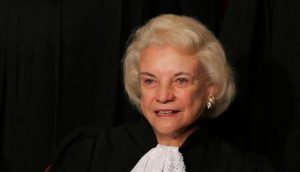Chief Justice of India, NV Ramana, on Sunday said women were entitled to demand reservation in the judiciary and law colleges. “It is your right,” Ramana said. He was addressing a felicitation ceremony organised by women advocates of the Supreme Court for him and the nine newly appointed judges. The chief justice quoted German philosopher and economist Karl Marx’s famous rallying cry “workers of the World unite, you have nothing to lose, but your chains” and said he would modify it to “women of the World unite. You have nothing to lose, but your chains.”
Ramana supported the demand for 50% reservation for women in the judiciary and law colleges across the country, according to NDTV.
“We need 50 per cent reservation for women in judiciary… It is an issue of thousands of years of oppression,” Ramana said. In lower levels of the judiciary less than 30% of judges are women, while in High Courts the percentage was 11.5, he said. “In Supreme Court only 11-12 per cent are women,” Ramana said.
The chief justice also highlighted the percentage of women among the 1.7 million advocates in the country. “Only 15% are women,” he said, adding only two per cent elected representatives in state bar councils are women. Ramana said the Bar Council of the India National Committee did not have even a single woman representative and these issues need to be addressed on an urgent basis.
ALSO READ: Watch | This ad about talks about India’s unreal beauty standards for women
He also pointed to “challenges unfriendly to women lawyers.”
“I am trying to resolve issues of infrastructure… forcing the executive to make changes,” the Chief Justice said, as he wished the audience on Daughter’s Day.
The number of women judges in the Supreme Court reached four after three women were sworn in recently in what was dubbed as a “historic” moment.
ALSO READ: International Women’s Day 2021: 5 women who inspired a generation and beyond
M Fathima Beevi was the first woman judge to be appointed to the apex court in 1989. Since then, only 10 women, including those sworn in on August 31, have become judges in the Supreme Court, according to The Hindu.






